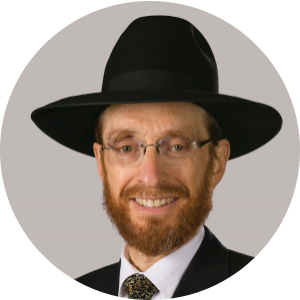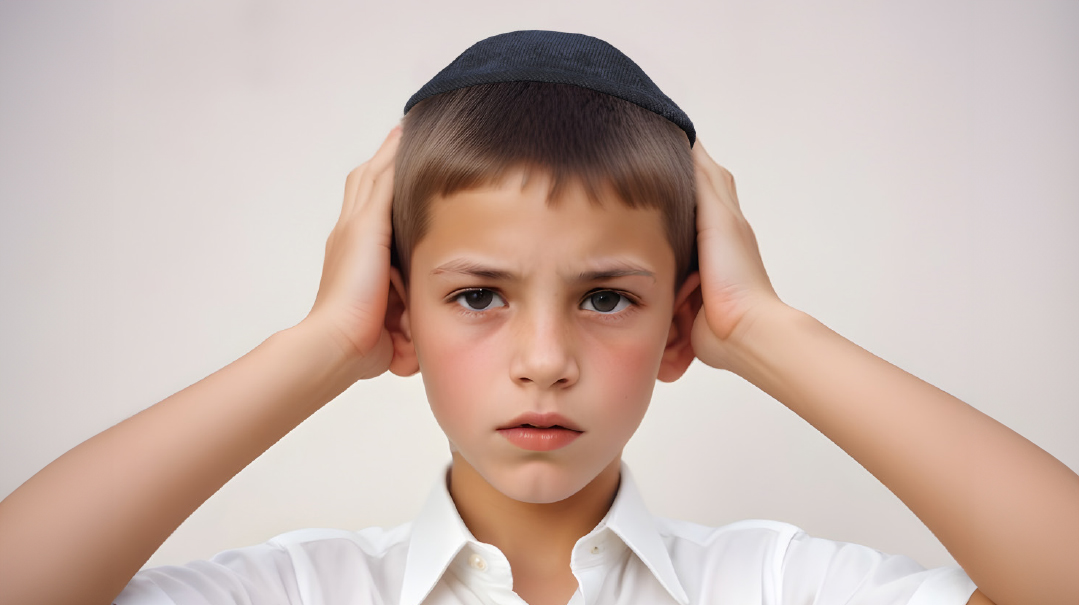Two Childhood Traumas

Whenever anyone, adult or child, suffers a trauma, anything that reminds him of the trauma will serve as a trigger that causes the person to re-experience the same fear, helplessness, and anxiety he felt at the time of the original trauma

A few years ago, Baruch and Pessy were totally baffled by their bright, personable youngest son, Yanky, and his unexplainable symptoms. For a little over a year, this ten-year-old seemed to be overly sensitive to loud noises, especially sirens and alarms. And paradoxically, he would practically have an anxiety attack if he heard the relatively low sound of a smoke alarm chirping due to a low battery.
Baruch, a mesivta menahel, and Pessy, a social worker, were both sophisticated parents who anticipated my questions and answered them without my even having to ask.
“He never had strep,” Pessy volunteered. “So we know it can’t be PANDAS [pediatric autoimmune neuropsychiatric disorders, associated with streptococcal infections]. And even our pediatrician is at a loss to explain why Yanky is acting this way.”
“He also has not been bullied at school or victimized in any way,” Baruch added. “But just to be sure, we have asked him directly, more than once. And each time he assures us that he has not been mistreated by anyone. We have discussed these things openly with all of our children. So we are pretty sure that if someone had started up with him, he would have told us about it.”
I took a standard developmental history of Yanky, asked about all of his four older siblings, and explored some of the family dynamics looking for clues. After coming up empty-handed, I shook my head and validated their confusion. Then I explained that the next step would be for me to meet with Yanky for a couple of individual sessions.
Finally, I asked, “How do you think Yanky will feel about coming here to meet with me?”
“Oh, he’ll be happy to come,” Pessy reassured me. “Before we came here, we asked him how he’d feel speaking with someone who might be able to help him with his fears. And he was totally on board.”
When I met with Yanky, he was as intelligent and charming as his parents had described. After conducting an initial clinical assessment for my first two sessions with Yanky, I was still clueless regarding the origin of his anxiety symptoms. And when I asked him why he thought he was so bothered by loud noises, he just shrugged his shoulders, shook his head, and told me he had no idea.
In the third session, I decided to try to take advantage of Yanky’s precociousness. I began by explaining the concept of associations — when someone has similar emotional reactions to two totally unrelated experiences because of one point of similarity. And I gave him the example of someone hearing a song he hadn’t heard for a long time and then experiencing the same emotions as the first time he heard it. When I saw that he grasped the concept, I asked if he ever had an experience of hearing loud noises and/or sirens at a time when he was also feeling somewhat worried or frightened.
Yanky’s face lit up, and he went on to enthusiastically describe the scene a little over a year earlier, when he and his siblings were wakened in the middle of the night by blaring sirens because a building directly across the street from his home had caught fire. In dramatic tones, he told me how the street had been filled with fire engines, flashing lights, and firemen working feverishly to extinguish the blaze.
Once we uncovered the trauma fueling his symptoms, helping Yanky to overcome his anxiety became a much more reachable goal, which was achieved after a few more sessions.
Whenever anyone, adult or child, suffers a trauma, anything that reminds him of the trauma will serve as a trigger that causes the person to re-experience the same fear, helplessness, and anxiety he felt at the time of the original trauma. And we find an excellent reference to this phenomenon in parshas Beshalach.
Moshe Rabbeinu said to Klal Yisrael right before Kri’as Yam Suf, “Fear not. Stand firm and see the yeshuah of Hashem that He will perform for you today; because the way you see the Mitzrim today, you will never see them again” (Shemos 14:13).
In other words, although it would be derech hateva for any Jew, upon seeing a Mitzri, to relive the 210 years of trauma our nation experienced in Mitzrayim, Moshe Rabbeinu was essentially reassuring Klal Yisrael that Hashem’s imminent miracle would not only rescue them from the present danger, but also dispel the trigger of seeing Mitzrim in the future.
As the Ohr HaChaim comments on that pasuk, “The intention of [Moshe Rabbeinu’s] statement was to remove fear from them [now]… And for this reason, Hashem was showing them [the destruction of the Mitzrim] so that no worry about [the Mitzrim] should ever remain [in the future].”
In a more recent case, while the childhood trauma was recognized, the trigger was not.
Simcha, a tall, neatly dressed, 21-year-old yeshivah bochur, consulted me on his own. He explained that he wanted to get some advice about something that had been bothering him.
“Ever since elementary school,” he began. “I struggled with social awkwardness, which was most likely caused by my having been bullied there. Baruch Hashem, last year I went to learn in Eretz Yisrael and made so many new friends that I ‘snapped out’ of my social anxiety. I finally became very comfortable making conversation with new people, talking in general, and even public speaking. My social handicap basically went away.
“A few months ago,” Simcha continued. “I returned to the States and joined a new yeshivah. One of the guys in the new yeshivah made fun of me. He didn’t make fun of me again afterwards. And he even had some nice interactions with me recently. But every time I see him now, I get a bit nervous and usually have an overall uncomfortable feeling. I even started to notice that my social awkwardness has come back.
“Now it’s very hard for me to get my sentences out. When I talk, it’s hard for me to find the right words to say and to organize my ideas. My mind is sort of ‘foggy’ when I speak. I’m this way even outside of yeshivah, away from the guy who made fun of me.
“I came a long way with my social anxiety last year in Eretz Yisrael,” Simcha concluded. “It’s a shame that I’ve had this setback.”
He then asked me what I thought had caused his relapse, and what he could do to recover from it.
I explained to Simcha what is probably already apparent to the reader: that his having been made fun of — even only once — served as a trigger that dredged up his painful childhood experience with bullying. And this had caused his relapse. Furthermore, the brain fog he was experiencing was a classic symptom of anxiety. And anxiety almost always accompanies any trauma. Finally, I recommended a brief course of trauma therapy to help him work through and overcome his anxiety so that he could return to the recovered state he had achieved before he was triggered by the person who had made fun of him.
Childhood traumas can remain buried for months and even years, while causing the victims varying levels of distress. If people can learn to recognize the source of their trauma and what triggers them, however, they are more than halfway toward achieving recovery. They can then go on to successfully overcome their anxiety, b’ezras Hashem, and return to their former healthy level of functioning. —
Dr. Meir Wikler, a frequent contributor to this space, is an author, psychotherapist, and family counselor in full-time private practice with offices in Brooklyn, New York, and Lakewood, New Jersey. He is also a public speaker whose lectures and shiurim are carried on TorahAnytime.com.
(Originally featured in Mishpacha, Issue 1011)
Oops! We could not locate your form.






